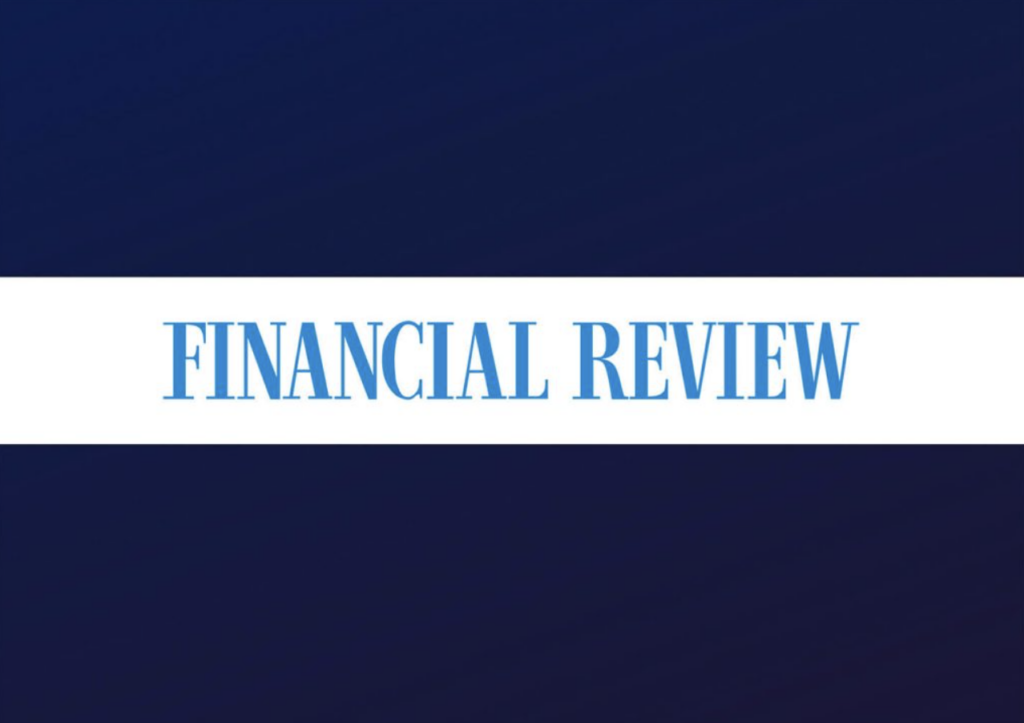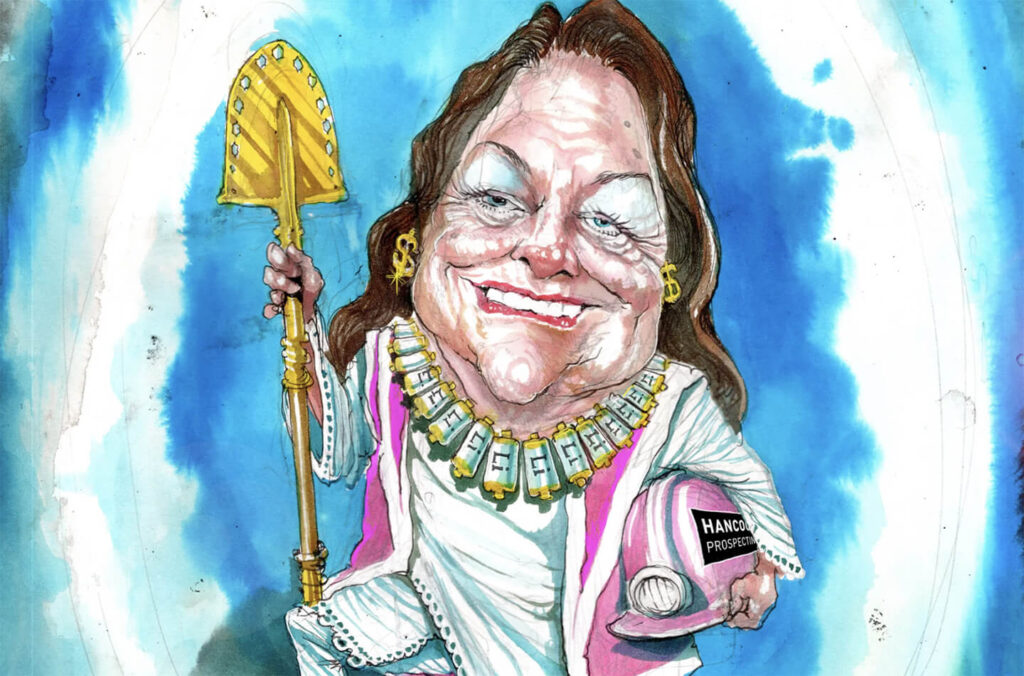

This is an edited extract of Gina Rinehart’s speech to The Australian Financial Review Business Person of the Year awards on December 14.
My dad’s estate was bankrupt – which should be public knowledge, given the lengthy legal proceedings and appeal.
So I still puzzle why the left media love to call me heiress, and even more puzzling is how they portray that once the government awards tenements to a company, after doing nothing much, money flows. Other than to undermine those who try hard and work hard.
The vast majority of tenements never make it to become mines. And, as Blind Freddie knows, no money flows.
Gina Rinehart is The Australian Financial Review’s Business Person of the Year for 2023. David Rowe
Our company has shown what outcomes can be achieved when employers and employees are able to work together.
It has been a challenging year for our primary industries, with more and more interventions from the government – and many in the city not understanding the import of these.
In agriculture, it’s no longer the dangerous fires, droughts, floods that are the main problem, but man-made ones. Government ones.
One of my least favourites is restricting farmers from being able to protect their families, staff, pets, homes and investment from fires – outlawing firebreaks over inadequate dimensions.
Another that has upset many farmers is the building of vast tracts of solar panels and wind farms and electricity connections across their land.
It is estimated that one-third of prime agricultural land will be taken over. What do you think this will mean to fresh quality food availability, and prices?
Maybe some more of these eyesores should be placed in city parks, rivers and city beaches – for us city dwellers to get a better idea, and to lessen the impact on agricultural land.
I know this won’t happen, you’re safe, given the cities are where the votes are.
And although farmers are upset, worried, even frightened, with these fire risks, transmission lines and large bird killers being placed on their properties, this is just the tip of the landslide waiting for them with net zero policies.
Take a typical station, like Fossil Downs – using the exact numbers of vehicles used to work that iconic station, replacing them with electric vehicles will cost $10.4 million to $11.4 million.
Plus unknown fines, as some of those EVs aren’t produced yet. And it doesn’t stop there.
If your station has, say, 50 windmills – essential to get the daily water stock need – and you are required to change that to solar pumps at $70,000 a pop, that’s another $3.5 million.
And it doesn’t stop there. Stations run on diesel-fuelled generators; change them to solar, and giant batteries will also be required.
Just how many farms and stations do you think will be able to pay for all this and still be able to operate, after hugely increasing the cost of food and fibres to city folk?
Probably only those with a mining company in their back pocket. But perhaps inner cities won’t mind different quality food coming in from overseas – not as fresh, not produced with our clean air and water, or environmental standards.
When primary industries are used to carrying onerous government burdens, Blind Freddie knows those costs must be passed on. Increasing council rates affect you even if you don’t own a house, as the landlord has to pass them on via rent.
Cut red tape
And payroll tax isn’t just for businesses to pay – as Blind Freddie knows, that too has to be passed on to you.
And excise on fuel, even if you don’t own a car – well, anything that requires transport requires fuel, so these costs are passed on.
I can’t think of anything that isn’t touched by the excise on fuel. I call that a nasty tax that, with people struggling, would be an absolutely fantastic one to cut.
Like other businesses, we have been speaking out regarding these interventions where we see that the path the government is taking is not in the best interests of Australians.
We need policy that helps Australians. We need policies that make investment in our country worth doing. If we have any interest in maintaining our standards of living, we should be doing what other countries are doing.
Rolling out the red carpet for investment. Expensive trade trips, even the expense of trade personnel overseas, well – without cutting the cost and delay, or worse, of government red tape, there’s no reason for those.
We need to understand that rolling out the red carpet for investment does not mean increasing government red tape and regulations. It does not mean the overburdened taxpayers paying for lawfare to delay or stop projects.
Blind Freddie can see. Common sense would be so helpful.
The Australian Financial Review, Australia’s leading business newspaper, and its media mates have an important role to play in conveying these Blind Freddie messages to our government.
Gina Rinehart is the executive chairman of Hancock Prospecting and Australia’s richest person. She is The Australian Financial Review Business Person of the Year for 2023.















